Search Results
Showing results 41 to 60 of 74
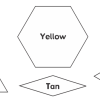
Fantastic Fractions
Source Institutions
In this math lesson, learners compare pattern blocks to visually understand halves, thirds, and sixths.

How Many Pennies?
Source Institutions
In this math activity, learners pretend there is a special store that lets you pay for toys by their weight in pennies.
Work for Your Money
Source Institutions
In this math activity, learners earn "money" by completing simple tasks. Learners complete as many "jobs" as possible in a set amount of time.
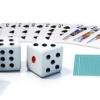
How High (or Low!) Can You Go?
Source Institutions
In this math activity, learners play a game using their number sense to make the highest or lowest number possible. Use this activity to explore place value and/or decimals.

Out of Sight: Remote Vehicle Activity
Source Institutions
In this robotics activity, learners drive a remote-controlled car through a course to learn the challenges faced while trying to operate a planetary rover.

Tossing Coins
Source Institutions
In this math game (Page 17 of the Are You Game? PDF), learners investigate probability by tossing coins.
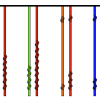
Quipus
Source Institutions
Learners create an Incan counting device called a quipu (pronounced kee-poo).

Slide Rules
Source Institutions
Learners make their own simple slide rules out of paper and learn how they work.
Numbered Heads
Source Institutions
In this math activity, learners play a game and use a variety of strategies to solve a hidden number problem (or missing factor). Learners practice their number and operations skills.

Sizing Up Temperature
Source Institutions
In this activity, learners explore Charles' Law in a syringe.
Squeeze Me!
Source Institutions
In this math activity, learners guess a secret number between 1 and 100 in a three-player game.
Magic Turtle Squares
Source Institutions
In this math activity, learners create a magic turtle where all the rows, columns and diagonals add up to fifteen.

Equal Sharing Game
Source Institutions
In this activity, learners are introduced to division and fractions as they share snacks with a group of friends.

In the Middle
Source Institutions
In this math activity, learners use problem solving skills to find a middle seat for Mary at the movies. Learners practice dividing numbers and identifying the middle of a quantity.

Average Names
Source Institutions
In this activity, learners compare the number of letters in the names of the people in their families or group of friends.

The Muddy City: Minimal Spanning Trees
Source Institutions
In this puzzle, learners investigate the decisions involved in linking a network between houses in a muddy city.

Looking Through the Algebraic Lens
Source Institutions
In this two-part math lesson, learners investigate problems that foster algebraic thinking across content strands. In the first part, learners explore even and odd numbers linked to quilts.
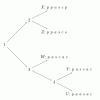
Phylogenetics
Source Institutions
This activity lets learners participate in the process of reconstructing a phylogenetic tree and introduces them to several core bioinformatics concepts, particularly in relation to evolution.
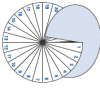
Sleep Patterns
Source Institutions
In this activity about sleep rhythms (on page 21 of the PDF), learners will collect data about their own sleep cycles and use a fraction wheel to examine their data.

Breaking the Code: Mayan Math
Source Institutions
This is a lesson plan for an activity in which learners, playing the role of archeologists, use math concepts about number bases to decipher the Dresden Codex, an ancient Mayan document.
